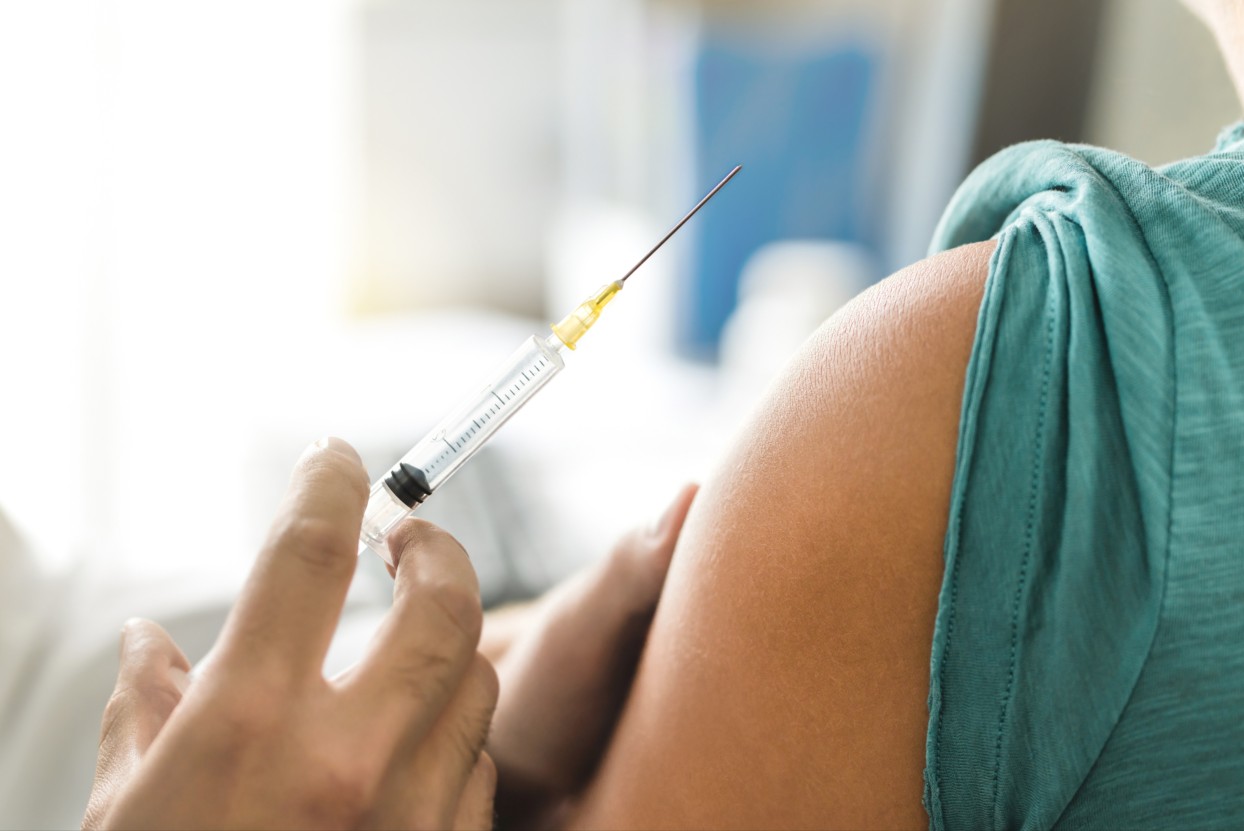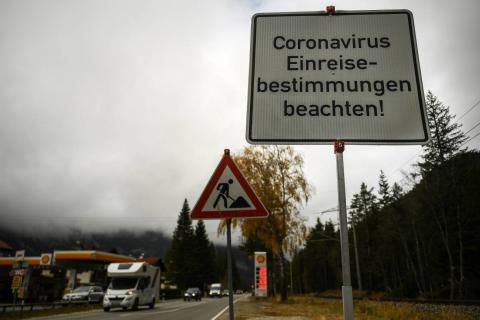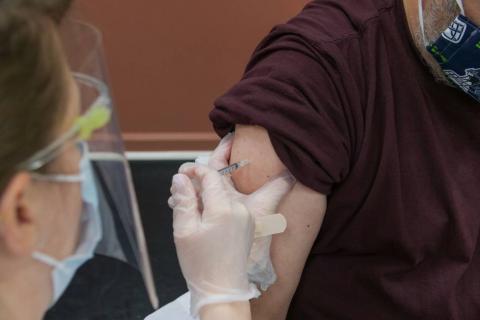Expert reaction on EMA recommendations on extra doses and boosters
The European Medicines Agency issued its recommendations yesterday afternoon regarding the administration of a third dose of the Comirnaty (Pfizer/BioNTech) and Spikevax (Moderna) vaccines. These are the reactions of several experts on the matter.

EMA experts have concluded that a booster dose of Pfizer can be considered for the general population over 18 years of age / Adobe Stock.
Marcos López Hoyos - Tercera dosis EN
Marcos López Hoyos
Scientific Director of the Valdecilla Health Research Institute (IDIVAL), Head of the Immunology Department, and Professor of Immunology at the University of Cantabria-Marqués de Valdecilla University Hospital
In severely immunosuppressed individuals, and in solid organ transplant recipients in whom it has been shown that [after a second dose] they do not produce antibodies, a third dose could be indicated. In a certain percentage of seronegatives after the third dose, antibodies are produced, although the EMA itself indicates that it has not been definitively demonstrated that this effect translates into increased protection.
In healthy individuals there is no evidence that the third dose can be of benefit, nor in those over 65 years of age. There is only one study that indicates an increase in the level of antibodies when given 6 months after the second dose. More work is needed to support this, in my view.
By promoting the third dose we are giving the impression that the vaccines are not working, and that is not correct: they are working. The proof is that this summer we have had a high incidence and people have been infected but have not become seriously ill, we have not had a significant increase in hospitalizations. This is not changed by the EMA recommendation.
Antonio Gutiérrez - Tercera dosis EN
Antonio Gutiérrez
Pharmacist and epidemiologist and specialist in infectious diseases
In people [with weakened immune systems] with organ or hematologic transplants, or treatments that depress b cells,, the third dose is clearly necessary, and we will see if a fourth is not forthcoming.
It has been proven that more than 60-70% of these patients do not respond to the vaccine as they should. Even after the third dose the humoral response is very poor, although it remains to be elucidated whether there will be a cellular response.
[The extra dose in patients with weakened immune systems] is essential for them and for their immediate environment and cohabitants.
On the third dose in the general population
Regarding the general population there is nothing that tells us that a third dose is needed. This seems contradictory to the studies that say that the humoral response increases [after the third dose], but that is to be expected. If you expose the body again to an antigen, it is normal for new neutralizing antibodies to be generated. That's to be expected, but with covid-19 everything is rediscovered and reinvented. No one has antibodies against infectious diseases their whole life or the blood would be like eggnog.
The immune system responds like this: it generates humoral response by antibodies that prevent the pathogen from attacking the cell, and when the war is over the antibody levels decrease, as attested by many studies. This is to be expected, we cannot have antibodies in the blood for life. That is why we have B lymphocytes that are in charge of generating new ones against the antigen if necessary.
Of course, antibodies increase [after a third general dose], but that doesn't mean we need them. I have not seen a study that says a third dose is needed in immunocompetent people without underlying pathologies and with a functioning immune system.
On the statement being ambiguous
It's written a little confusingly. It is like saying do what you want, it seems fine to me and I do not get involved in assessing whether it is necessary because you are already doing it.
Manel Juan - Tercera dosis EN
Manel Juan
Head of the Immunology Service
In the immunosuppressed population, such as solid organ and hematopoietic transplant recipients, there is a small part that with two doses is not immunized, hence the recommendation for a third dose.
These are not all immunosuppressed persons; many will be protected after two doses of the vaccine, but even so, the third dose is chosen for simplicity, because it is complicated to identify those who, although they do not have antibodies, have developed cellular immunity. It is well thought out because these patients are already exposed to many infections and SARS-CoV2 infection can give a very serious COVID19.
In any case, what the EMA says is what it can say, which is that a third dose 'can' be given. It it harmful? No. Is it necessary? Well, when half the world is still unvaccinated, and precisely because of this we are risking the appearance of a variant for which the vaccines do not work... Well, no, it does not seem necessary... Nor does it seem the best thing to do in the general population.
It is normal that the EMA has aligned itself with this tolerant position towards allowing additional doses, ... even more so when the interests are many. The companies that have produced the vaccines have made and continue to make a lot of profits, and they continue and will continue to lobby. It is easy to get the idea that if something is good, such as a vaccine, the more the better, but in this case it is not so: you cannot be 'highly immunized' in the same way that you cannot be 'highly pregnant'.
Immunization as a concept of "being protected" from suffering a particularly serious disease after contact with the virus, means having it or not having it. Having more antibodies does not mean being more protected, ... the important thing is to have specific cellular immunological memory.
In any case, the EMA does not say that a third dose must be given, but that it can be done.
"On the other hand, a third dose to severely immunocompromised individuals does not jeopardize the availability of vaccines for those who are not reached, as in the third world, because they are a small volume of individuals. But if the decision is made to give it to everyone, it does."
We have vaccines that with two doses after one year continue to provide protection to practically the entire population. We do not have data beyond one year because we cannot have them, but for now the protection is there.
Iria Gómez - Tercera dosis EN
Iria Gómez-Touriño
Associate Lecturer in the Department of Biochemistry and Molecular Biology
I think there are two different issues here: (1) third dosein transplant patients (the mentioned studies do not refer to other types of immunosuppressed patients), and (2) booster dose in healthy people who have already received two doses.
(1) In my opinion, it is important to conduct these studies in immunocompromised patients, since they are the most vulnerable to SARS-CoV-2 infection. Their immune systems do not function or function incompletely and,therefore, their response to vaccines may be much lower than desired/expected.Therefore, a priori, and provided the administration of the third dose is safe,I believe it would be appropriate to administer a third dose.
In this regard, the study by Kamar et al is retrospective, in transplant patients immunized with Pfizer, in whom they observed thatantibody titers increased after the third dose. In my opinion, this ispromising, although they have not tested whether or not these antibodies areneutralizing and/or can fight infection. It is basically descriptive of a fact (increase in antibody titers), it would remain to be demonstrated that, indeed,their immune systems are, after the third dose, better able to fight the virus.
Regarding the study by Hall et al, I see it as much morecomplete since it is a clinical trial (NCT04885907). In this case they do lookat whether the antibodies are neutralizing, and they do a small analysis of thephenotype of T lymphocytes specific for SARS-CoV-2. So administering the third dose of Moderna in transplant patients seems safe. However, they themselves indicate that their results do not (yet) indicate that this third dose endows them with resistance to infection, since a longer follow-up period is necessary.
Therefore, I believe that these studies suggest that thethird dose could (conditional time) be effective in transplanted patients.Given the current medical urgency, I understand that the EMA approves its use,even if they have only "circumstantial" evidence of efficacy, sincein light of these studies it appears that the administration of the third doseis safe in transplant patients, but they are not conclusive that it iseffective.
The press release generalizes the use to allimmunocompromised patients - I have not done a literature search for third doseadministration in immunocompromised patients (e.g. from cancer treatments, orwith autoimmune diseases). I believe that the EMA wants to open the third doseto all immunosuppressed, although the two studies you mention are only intransplant recipients.
In conclusion, I understand that the EMA, based on thesestudies, extrapolates to all immunosuppressed patients that the administrationof the third dose is safe and could be effective. Surely before the pandemicthey would wait for more data to issue this opinion, but given the currentcircumstances they prefer to go ahead, seeing that it seems to be safe. It maynot be effective afterwards, but just in case.... In fact, they make it veryclear in this sentence: "Although there is no direct evidence that theability to produce antibodies in these patients protected against COVID-19, itis expected that the extra dose would increase protection at least in somepatients. EMA will continue monitoring any data that emerges on its effectiveness".
(2) Regarding this issue I give you my personal opinion: in my opinion, a third booster dose in a healthy, "young" and non-immunosuppressed population would be something interesting to consider, but perhaps not now. I believe that the objective should be that other less favoredcountries, with fewer resources, have access to these doses in order to be able to vaccinate their population with the corresponding doses, and from there to evaluate that the countries with more resources receive a third booster dose.If the virus continues to circulate freely throughout entire countries, it will continue to mutate and generate resistant strains.


